The Crucial Role and Evolution of Insulation Tape in Modern Industries
In the intricate landscape of modern electrical and electronic systems, the reliability and safety of components are paramount. At the heart of this reliability lies a seemingly simple yet profoundly important product: insulation tape. Far from being a mere accessory, it serves as a critical barrier, preventing electrical current leakage, protecting against environmental hazards, and ensuring operational integrity. The demand for advanced insulating solutions has spurred significant innovations in materials and manufacturing processes, driven by the escalating complexity and voltage requirements across diverse industrial sectors.
Understanding the profound impact of high-performance electrical insulation tape requires a deep dive into its inherent properties and the stringent demands it addresses. From safeguarding power cables in petrochemical plants to ensuring precision in aerospace electronics, the correct choice of insulating material directly influences system longevity and safety. This article will explore the technological advancements, critical parameters, and versatile applications that position insulation tape as an indispensable component in engineering and maintenance strategies worldwide. We will also delve into specific product types, such as Insulating Cloth Tape, highlighting its unique advantages and manufacturing excellence.
The global market for electrical insulating tapes is witnessing steady growth, propelled by the expansion of renewable energy infrastructure, the booming automotive electrification sector, and continuous urbanization projects demanding robust electrical networks. Industry reports indicate a compound annual growth rate (CAGR) of approximately 5-7% for the electrical insulation materials market, projected to reach over USD 14 billion by 2028. This growth underscores the increasing reliance on high-quality insulation solutions to meet stringent safety standards and operational efficiencies. As industries evolve, so too must the materials that form their backbone, with constant innovation pushing the boundaries of temperature resistance, dielectric strength, and environmental resilience.
Manufacturing Excellence: The Process Behind Insulating Cloth Tape
The production of high-performance insulation tape, particularly specialized varieties like Insulating Cloth Tape, involves a meticulously controlled multi-stage manufacturing process. This process ensures that the final product meets critical performance criteria such as dielectric strength, tensile strength, and thermal stability. Unlike metal parts that undergo processes like casting or CNC machining, tape manufacturing is primarily a continuous coating and converting operation.
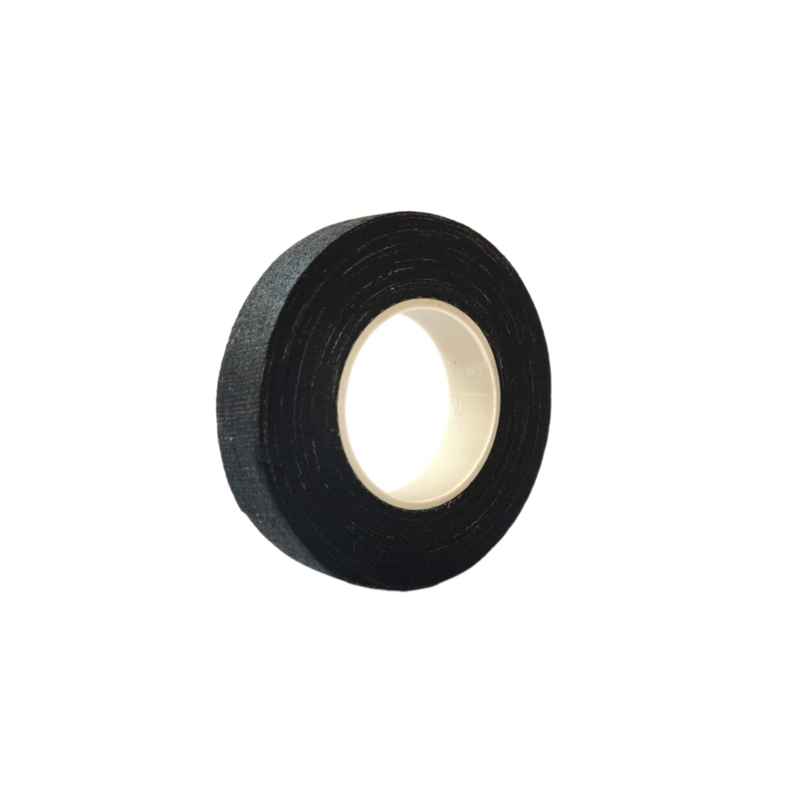
Key Stages in Manufacturing Insulating Cloth Tape:
- Material Selection and Preparation: The foundation of quality insulation tape begins with selecting premium-grade materials. For Insulating Cloth Tape, this typically involves high-quality woven fabrics such as cotton, polyester, or fiberglass, chosen for their inherent strength, flexibility, and temperature resistance. Adhesives are formulated based on application requirements, often using rubber-based, acrylic, or silicone chemistries for specific adhesion profiles, temperature ranges, and electrical properties.
- Fabric Treatment and Pre-coating: The chosen fabric undergoes preparatory treatments to enhance its adhesion properties and ensure uniform coating. This might involve cleaning, sizing, or calendering to create a smooth, consistent surface. Some fabrics might receive a primer layer to promote better bonding with the subsequent adhesive.
- Adhesive Coating: This is a critical step where the formulated adhesive is applied to one or both sides of the fabric backing. Common coating methods include:
- Knife-over-roll coating: Precise application of adhesive with a doctor blade.
- Gravure coating: For precise, uniform thin layers.
- Transfer coating: Adhesive is first applied to a release liner, then transferred to the fabric.
- Drying and Curing: After coating, the adhesive-coated fabric passes through a drying oven where solvents are evaporated, and the adhesive is cured. Curing involves chemical reactions that cross-link the adhesive, enhancing its strength, temperature resistance, and solvent resistance. Temperature and dwell time are precisely controlled to ensure optimal adhesive performance.
- Slitting and Winding: The wide master rolls of coated fabric are then precisely slit into the desired widths using high-precision slitting machinery. This ensures uniform roll width and edge quality. The individual rolls of insulation tape are then wound onto cores, ready for packaging.
- Quality Control and Packaging: Throughout the entire process, rigorous quality control checks are performed. This includes visual inspections, adhesion tests, thickness measurements, and electrical property tests (e.g., dielectric strength) to ensure compliance with product specifications and industry standards.
Manufacturers adhere to international standards such as ISO 9001 for quality management systems, ensuring consistent product quality. For electrical tapes, compliance with ASTM D1000 (Standard Test Methods for Pressure-Sensitive Adhesive-Coated Tapes Used for Electrical Insulation) and IEC 60454 (Pressure-sensitive adhesive tapes for electrical purposes) is crucial. These standards define test methods for properties like dielectric breakdown voltage, tensile strength, elongation, adhesion, and flame retardancy.
The lifespan of insulation tape can vary significantly based on its material composition, application environment, and storage conditions. High-quality electrical insulating tapes, designed for industrial use, can offer a service life of several years, often exceeding 10 years when applied correctly and not subjected to extreme degradation factors. For instance, Insulating Cloth Tape, known for its mechanical robustness and thermal stability, provides exceptional longevity in demanding environments, making it ideal for applications in power generation, industrial machinery, and automotive electrical systems. Its superior conformability and resistance to abrasion contribute to a long-lasting protective barrier, reducing the need for frequent maintenance and replacement. This contributes to significant cost savings and enhanced operational efficiency, particularly in industries where downtime is expensive, such as petrochemical and metallurgy, by protecting critical electrical connections from corrosion and wear.
Technical Parameters and Performance Metrics
Selecting the appropriate insulation tape for a specific application requires a thorough understanding of its technical parameters. These metrics define the tape's performance capabilities and suitability for various electrical and mechanical demands. Key parameters include dielectric strength, tensile strength, elongation, and temperature rating.
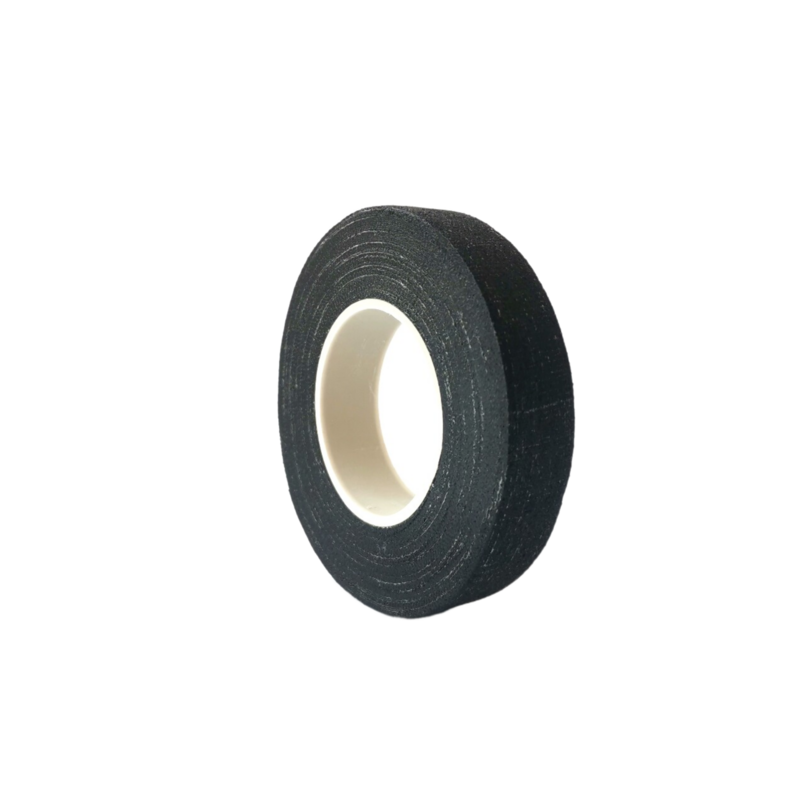
Critical Parameters of High-Performance Insulation Tape:
| Parameter | Description | Typical Range (Insulating Cloth Tape) | Industry Standard/Test Method |
|---|---|---|---|
| Dielectric Strength (Breakdown Voltage) | The maximum voltage that an insulating material can withstand without breakdown. Measured in Volts per mil (V/mil) or kV/mm. A higher value indicates better electrical insulation properties, crucial for preventing arc flash and short circuits. | 1000 - 3000 V/mil (or 40-120 kV/mm) | ASTM D1000, IEC 60454 |
| Tensile Strength | The maximum stress a material can withstand before breaking when subjected to tension. Important for mechanical durability, especially in applications where the tape experiences pulling or wrapping force. Measured in lbs/in (N/cm) or psi. | 20 - 50 lbs/in (35 - 90 N/cm) | ASTM D1000, IEC 60454 |
| Elongation | The percentage by which a material can stretch before breaking. Higher elongation indicates better conformability to irregular surfaces, which is critical for effective insulation wrapping. | 10% - 30% (for cloth tapes, lower than PVC) | ASTM D1000, IEC 60454 |
| Temperature Rating | The maximum continuous operating temperature the tape can withstand without degradation of its electrical or mechanical properties. Critical for high-temperature environments. Rated in Celsius or Fahrenheit. | 105°C to 150°C (221°F to 302°F) for general purpose; specialty tapes higher. | UL 510, IEC 60454 |
| Adhesion to Steel (or other substrates) | The force required to peel a tape from a standard stainless steel panel at a specific angle and speed. Indicates the tape's ability to stick and stay in place. Measured in oz/in or N/cm. | 25 - 50 oz/in (2.7 - 5.4 N/cm) | ASTM D1000, PSTC-101 |
| Thickness | The overall thickness of the tape, including backing and adhesive. Measured in mils or millimeters. Affects conformability, dielectric strength, and bulk. | 7 - 15 mils (0.17 - 0.38 mm) | ASTM D1000 |
| Flame Retardancy | The ability of the tape to resist ignition and self-extinguish. Crucial for safety in applications where fire hazards exist. Often specified by UL listings (e.g., UL 510). | Self-extinguishing (per UL 510) | UL 510 |
Beyond these core parameters, advanced considerations include arc resistance, which measures a material's ability to withstand voltage discharge without forming a conductive path; corona discharge resistance, essential for high-voltage applications where partial discharges can degrade insulation over time; and volume resistivity, indicating the material's resistance to current flow through its bulk. For applications in wet or humid environments, moisture resistance and hydrolysis stability are also critical, preventing the degradation of insulating properties over time due to water ingress. These nuanced technical specifications allow engineers to precisely match an insulation tape to its demanding operational context, ensuring optimal performance and safety.
Applications and Technical Advantages of Insulating Cloth Tape
The versatility of insulation tape extends across numerous industries, providing essential electrical protection, mechanical reinforcement, and environmental sealing. Among the various types, Insulating Cloth Tape stands out for its unique blend of properties, offering distinct advantages over traditional PVC or rubber-based tapes in specific high-demand scenarios.
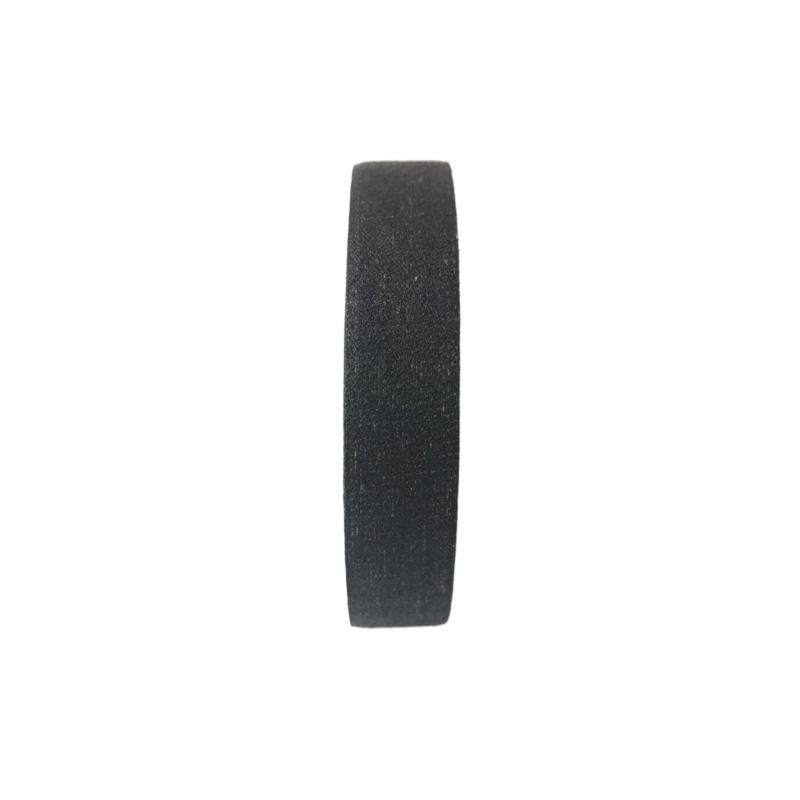
Typical Application Scenarios:
- Electrical Wiring and Cable Harnessing: Insulating Cloth Tape is extensively used for insulating splices, protecting wire bundles, and providing abrasion resistance in automotive, aerospace, and industrial machinery wiring. Its flexibility allows for tight, conformable wraps around irregular shapes.
- Motor and Transformer Insulation: In high-temperature and high-stress environments found in motors, transformers, and coils, its excellent thermal stability and high dielectric strength are critical for maintaining insulation integrity and preventing breakdown.
- Industrial Equipment and Machinery: For robust electrical insulation and mechanical protection in heavy-duty machinery, pumps, and control panels within sectors like petrochemicals, metallurgy, and manufacturing. Its resistance to oils, chemicals, and elevated temperatures is a significant asset.
- HVAC Systems: Used for sealing ducts, insulating pipes, and securing electrical connections in heating, ventilation, and air conditioning units, contributing to energy efficiency and system safety.
- Construction and Infrastructure: For insulating electrical conduits, providing splice protection, and reinforcing connections in commercial and residential building projects, ensuring long-term safety and compliance.
- Marine and Offshore Applications: Where harsh environmental conditions demand superior moisture and corrosion resistance, electrical insulating tapes with robust backings are vital for protecting wiring and components from saltwater and humidity.
Technical Advantages of Insulating Cloth Tape:
- Superior Mechanical Strength and Abrasion Resistance: The woven fabric backing provides exceptional tensile strength and resistance to cuts, punctures, and abrasion, making it ideal for applications where physical protection is as important as electrical insulation. This translates into longer service life and reduced maintenance in high-wear environments.
- Excellent Thermal Stability: Unlike pvc insulation tape, which can become brittle at low temperatures or soften at high temperatures, cloth tapes typically maintain their integrity and adhesive performance across a wider temperature range. This makes them suitable for both cryogenic and high-heat applications, enhancing reliability in fluctuating thermal conditions.
- High Conformability and Hand Tearability: Despite its strength, cloth tape is highly conformable to irregular surfaces and often allows for easy hand tearing, simplifying application in complex geometries without the need for tools. This improves installation efficiency, especially in field repairs or complex wiring assemblies.
- Moisture and Chemical Resistance: Depending on the adhesive and backing treatment, Insulating Cloth Tape can offer good resistance to moisture, oils, solvents, and various industrial chemicals, preventing degradation of electrical properties in challenging environments.
- Low outgassing: Crucial for sensitive electronic environments or sealed enclosures, certain cloth tapes are formulated to minimize outgassing of volatile organic compounds (VOCs), preventing contamination or degradation of other components.
- Versatile Adhesion: Available with various adhesive systems (e.g., rubber, acrylic, silicone), cloth tapes can adhere well to a wide range of substrates, including metals, plastics, and other insulation materials, ensuring secure and lasting bonds.
These technical advantages make Insulating Cloth Tape a superior choice for applications demanding exceptional durability, thermal performance, and robust electrical insulation, especially where traditional tapes might fail. For instance, in mining equipment or heavy construction machinery, the combined mechanical strength and electrical safety provided by cloth electrical tape are indispensable.
Comparative Analysis: Insulating Cloth Tape vs. Other Insulation Tapes
While many types of insulation tape exist, understanding their differences is crucial for optimal application. Here, we compare Insulating Cloth Tape (a prime example of cloth electrical tape) with two other common types: PVC insulation tape and rubber electrical insulation tape.
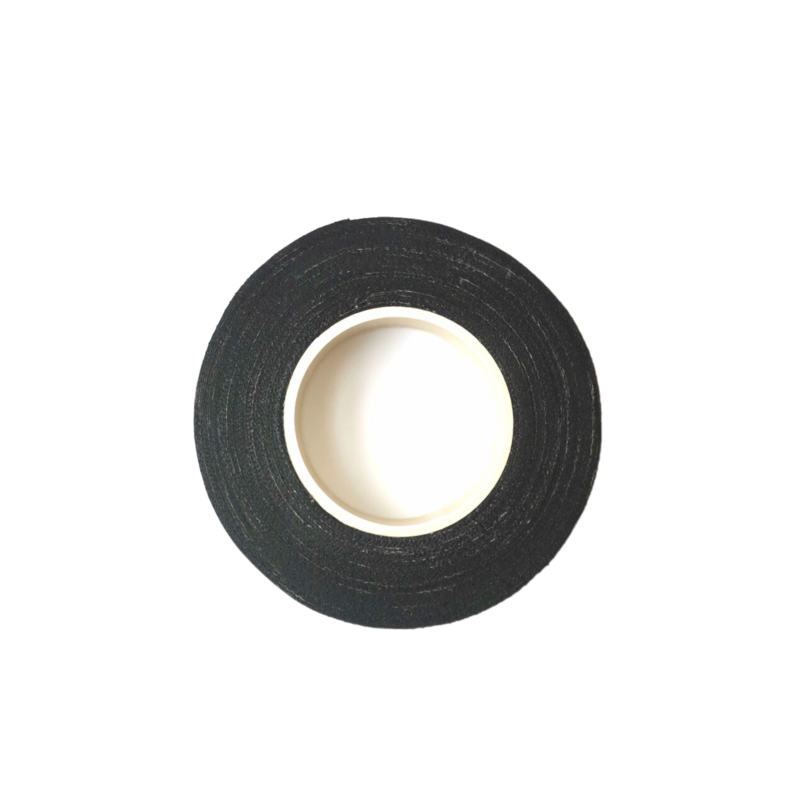
Insulation Tape Type Comparison:
| Feature | Insulating Cloth Tape (e.g., Insulating Cloth Tape) | PVC Insulation Tape | Rubber Insulation Tape (Self-Amalgamating) |
|---|---|---|---|
| Backing Material | Woven fabric (cotton, polyester, fiberglass) | Polyvinyl Chloride (PVC) film | Ethylene Propylene Rubber (EPR) or Silicone |
| Adhesive Type | Rubber-based, Acrylic, Silicone | Rubber-based, Acrylic | Non-adhesive (self-fusing/amalgamating) |
| Temperature Range | Good to excellent (up to 150°C for some types, even higher for fiberglass based) | Limited (-10°C to 80°C) | Very good (up to 130°C for EPR, much higher for silicone) |
| Mechanical Strength | Excellent tensile strength, high abrasion resistance, tear-resistant | Good tensile strength, moderate abrasion resistance, can be punctured easily | Poor mechanical strength, requires outer protective layer |
| Conformability | Good, slightly less stretch than PVC but conforms well to irregular surfaces | Excellent, very flexible and stretchable | Excellent, molds perfectly to shapes as it amalgamates |
| Moisture/Water Resistance | Good, dependent on adhesive and treatment; generally not fully waterproof | Excellent, forms a waterproof seal | Excellent, forms a completely waterproof, void-free mass |
| UV Resistance | Moderate to good, dependent on backing material and color | Good (for outdoor grade types) | Excellent (especially silicone rubber) |
| Typical Use | Motor winding, coil wrapping, harness building, heavy-duty electrical insulation, mechanical protection | General electrical insulation, wire color-coding, light-duty harnessing | Primary insulation for high voltage splices, moisture sealing, corrosion protection |
| Cost | Moderate to High (reflects specialized performance) | Low (most common and economical) | Moderate to High (for specialized electrical applications) |
This comparison highlights that while PVC insulation tape is a cost-effective, general-purpose solution with excellent flexibility, it falls short in high-temperature or high-abrasion environments where Insulating Cloth Tape excels. Rubber tapes provide superior moisture sealing and high-voltage insulation due to their self-amalgamating properties but lack the mechanical robustness of cloth tapes and often require an outer protective layer. Therefore, for critical industrial applications demanding durability, thermal stability, and reliable electrical isolation under mechanical stress, Insulating Cloth Tape presents a compelling advantage and often proves to be a more cost-effective long-term solution despite its initial higher price point due to reduced maintenance and replacement needs.
Customization and Tailored Solutions
Recognizing that standard products may not always meet the unique demands of highly specialized industrial applications, reputable manufacturers of electrical insulation tape offer extensive customization options. This bespoke approach ensures that clients receive insulating solutions perfectly aligned with their specific operational requirements and challenges.
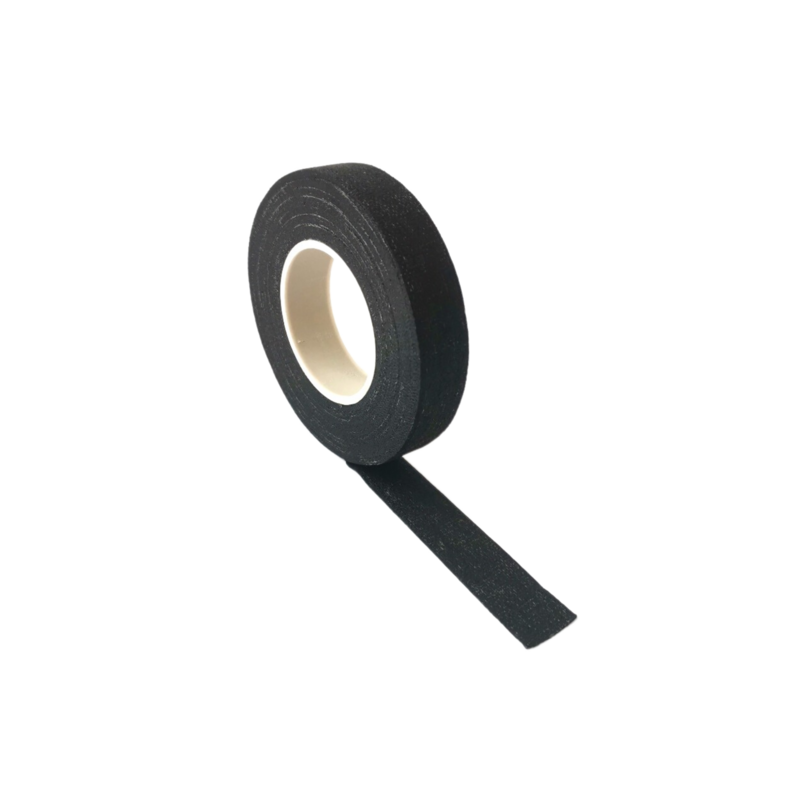
Key Areas of Customization:
- Material Composition: Tailoring the backing material (e.g., specific weave of cotton, type of polyester, or grade of fiberglass) and adhesive chemistry (e.g., high-temperature acrylic, specialized rubber, or silicone for specific adhesion and environmental resistance) to meet unique thermal, chemical, or mechanical demands. For example, a client requiring exceptionally high dielectric strength for high-voltage transformers might opt for a fiberglass-reinforced cloth tape with a specialized silicone adhesive.
- Dimensions and Form Factors: Manufacturing tapes in specific widths, lengths, and even die-cut shapes (e.g., pre-cut squares or circles for specific component insulation) to optimize assembly processes and minimize waste. This is particularly valuable in automated production lines where precision is paramount.
- Performance Attributes: Adjusting parameters such as flame retardancy (to meet specific UL standards), UV resistance for outdoor applications, moisture barrier properties, or chemical resistance to withstand aggressive industrial solvents. This ensures the insulation tape performs optimally even under extreme conditions.
- Color and Marking: Producing tapes in specific colors for phase identification, safety coding, or branding purposes. Custom printing with logos, part numbers, or safety warnings can also be incorporated onto the tape surface.
- Adhesive Release Liner: For some applications, particularly those involving intricate shapes or automated dispensing, a specific release liner may be required to facilitate easier handling and application.
For instance, in the automotive sector, where strict specifications govern every component, a manufacturer might require an insulation tape that can withstand engine compartment temperatures, resist common automotive fluids (oil, brake fluid), and possess specific noise-damping characteristics for wiring harnesses. A custom Insulating Cloth Tape solution, perhaps with a specific fabric weave for sound deadening and a high-temperature acrylic adhesive, would be developed to meet these precise criteria, significantly enhancing the final product’s performance and reliability.
By collaborating closely with clients, leading tape manufacturers employ their technical expertise and state-of-the-art R&D facilities to develop prototypes, conduct rigorous testing (e.g., accelerated aging tests, environmental chambers), and ensure the customized insulation tape solution meets all performance benchmarks and regulatory compliance requirements.
Ensuring Trust: Quality, Support, and Warranty
In the B2B landscape, trust is foundational. When sourcing critical components like insulation tape, buyers seek not just product quality but also reliability in service, technical support, and long-term commitment from their suppliers. A commitment to transparency and robust post-sales support significantly enhances a supplier's trustworthiness and value proposition.
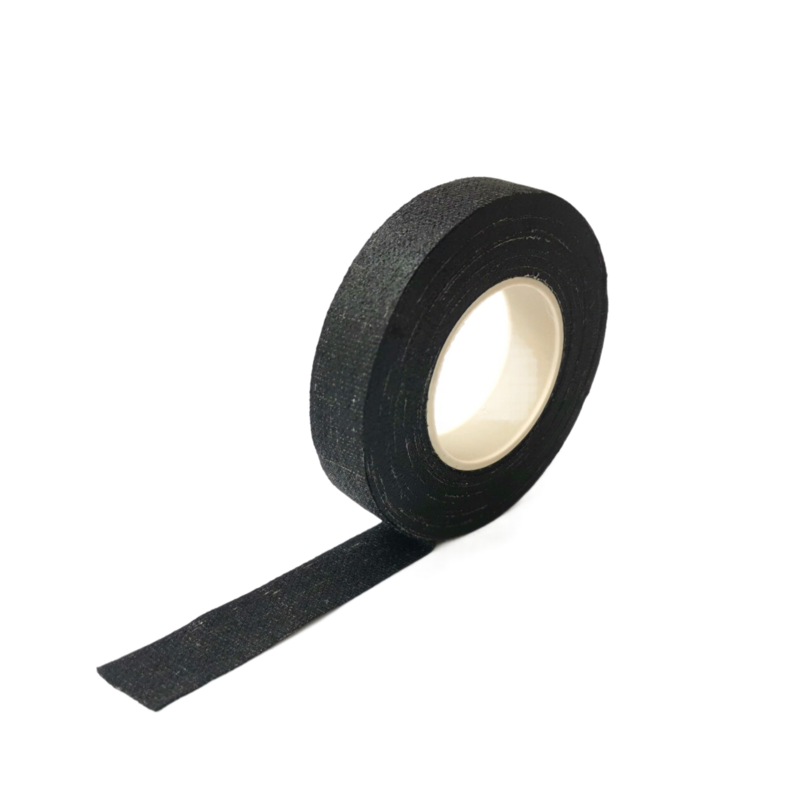
Authoritative and Trustworthy Elements:
- Certifications and Compliance: Products like Insulating Cloth Tape should come with demonstrable adherence to international quality and safety standards. This includes ISO 9001 (Quality Management System) for manufacturing processes, UL (Underwriters Laboratories) listings for electrical safety, RoHS (Restriction of Hazardous Substances) compliance, and REACH (Registration, Evaluation, Authorisation and Restriction of Chemicals) compliance. These certifications provide independent validation of product quality and safety.
- Rigorous Testing and Data: Reputable manufacturers provide comprehensive technical data sheets and test reports for their electrical insulation tape. This includes detailed information on dielectric strength, tensile strength, temperature rating, adhesion, and flame retardancy, backed by tests conducted according to ASTM, IEC, or other relevant industry standards.
- Service Longevity and Partnerships: A long history of serving diverse industries and established partnerships with leading companies reflect a supplier's experience and proven reliability. Multi-year service agreements and repeat business from blue-chip clients are strong indicators of trustworthiness.
- Transparent Delivery and Logistics: Clear communication regarding lead times, delivery schedules, and logistics capabilities is essential. For global clients, understanding international shipping protocols, customs clearance, and lead times (e.g., standard delivery 2-4 weeks, expedited options available) is vital for supply chain planning.
FAQ and Customer Support:
Providing easily accessible answers to common questions demonstrates a commitment to customer satisfaction and proactive problem-solving.
- Q1: What is the shelf life of Insulating Cloth Tape?
A: Typically, Insulating Cloth Tape has a shelf life of 12-24 months when stored in a cool, dry place (e.g., 20-25°C, 50% relative humidity) away from direct sunlight and extreme temperatures. Proper storage is crucial to maintain adhesive performance. - Q2: Can Insulating Cloth Tape be used outdoors?
A: While it offers good general resistance, for prolonged outdoor exposure to UV radiation and harsh weather, specific grades designed with UV-resistant backings or protective overlays are recommended. Our technical team can advise on suitable solutions for outdoor applications. - Q3: What surfaces does Insulating Cloth Tape adhere to best?
A: Our Insulating Cloth Tape is designed to adhere well to a variety of clean, dry surfaces including metals (copper, aluminum), plastics (PVC, ABS), and other insulating materials. Surface preparation, such as cleaning, can significantly improve adhesion. - Q4: Is Insulating Cloth Tape flame retardant?
A: Many of our Insulating Cloth Tape products are engineered to be self-extinguishing and meet relevant flame retardancy standards like UL 510. Specific certifications are detailed in the product’s technical data sheet. - Q5: How does the delivery cycle work for custom orders?
A: For custom orders, the delivery cycle typically involves a 1-2 week lead time for material sourcing and sample production, followed by 3-4 weeks for full production and quality checks. Expedited options are available upon request and depend on order volume and material availability.
Warranty and After-Sales Commitment:
A comprehensive warranty and responsive customer support team reinforce a supplier's dedication to their product and client satisfaction.
- Product Warranty: We typically offer a standard 12-month warranty on our electrical insulating tapes, guaranteeing them to be free from defects in material and workmanship under normal use and service conditions. Extended warranties or specific performance guarantees may be negotiated for high-volume or critical applications.
- Technical Support: Our dedicated team of technical experts is available to provide guidance on product selection, application best practices, troubleshooting, and custom solution development. We offer pre-sales consultation and post-sales support to ensure optimal product performance and customer satisfaction.
- Customer Feedback Mechanism: We actively encourage customer feedback to continuously improve our products and services. A robust feedback loop ensures that client experiences directly influence our innovation and quality control processes.
Conclusion: The Future of Electrical Insulation
The landscape of electrical systems is continuously evolving, demanding higher performance, greater reliability, and enhanced safety from every component. Insulation tape, particularly advanced solutions like Insulating Cloth Tape, is at the forefront of this evolution. Its critical role in preventing electrical failures, providing mechanical protection, and ensuring operational longevity cannot be overstated. From the rigorous manufacturing processes that ensure its quality to its diverse applications across vital industries such as automotive, aerospace, power generation, and heavy manufacturing, the technical superiority of specialized insulating tapes is clear.
As industries increasingly prioritize energy efficiency, digitalization, and electrification, the demand for highly specialized and customized electrical insulating tapes will only grow. Manufacturers committed to innovation, stringent quality control, and robust customer support will continue to be the trusted partners for businesses seeking to build safer, more reliable, and more efficient electrical systems. Investing in high-quality insulation tape is not merely a purchase; it is an investment in the long-term integrity and safety of critical infrastructure.
References
- ASTM D1000 - Standard Test Methods for Pressure-Sensitive Adhesive-Coated Tapes Used for Electrical Insulation.
- IEC 60454 - Pressure-sensitive adhesive tapes for electrical purposes.
- UL 510 - Standard for Polyvinyl Chloride, Polyethylene, and Rubber Insulating Tape.
- ISO 9001 - Quality management systems — Requirements.
- Market Research Report on Global Electrical Insulation Materials Market by 2028.
- Institute of Electrical and Electronics Engineers (IEEE) Standards for Electrical Insulation.
-
Self Amalgamating Tape: Waterproof Electrical Insulation & SealingNewsAug.30,2025
-
Self Amalgamating Tape: Waterproof Electrical & Pipe SealNewsAug.29,2025
-
Medium Voltage Fusion Tape | Self-Fusing Electrical InsulationNewsAug.28,2025
-
Butyl Rubber Tape for Ventilation PipesNewsAug.22,2025
-
Flex Tape Waterproof for Underground CablesNewsAug.22,2025
-
Flame Retardant Tapes for Circuit InsulationNewsAug.22,2025
